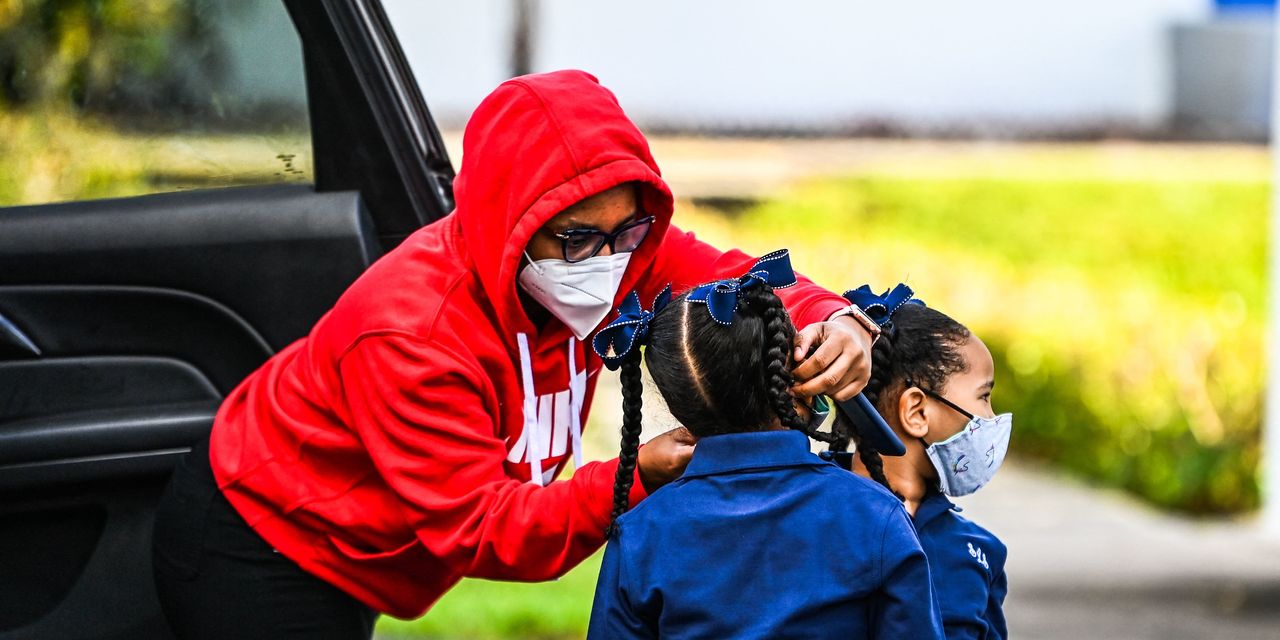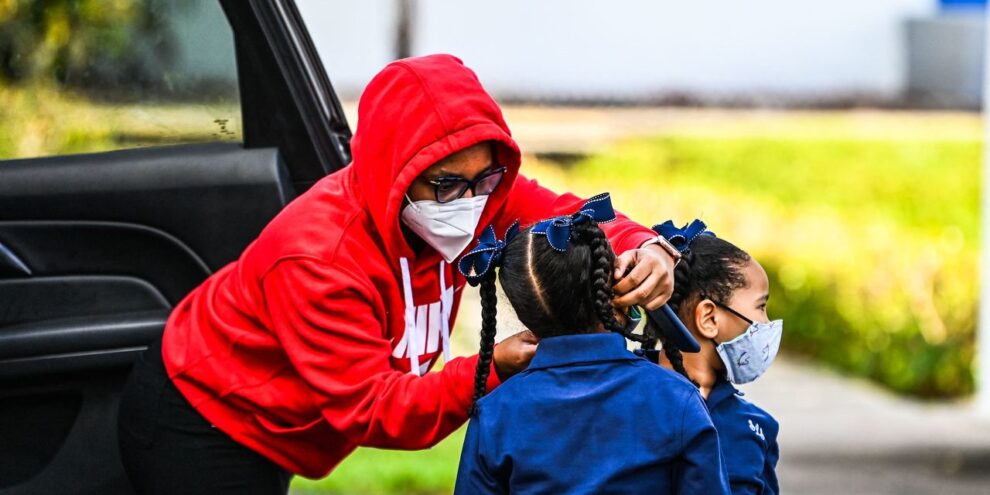
“‘Very concerned that this new guidance will essentially recommend “one-way masking” w/ the burden to protect themselves falling on the most vulnerable.’”
That’s a tweet TWTR, +0.89% from Dr. Oni Blackstock, a primary-care and HIV physician in New York City, after early reports that the Centers for Disease Control and Prevention planned to loosen COVID-19 guidelines for wearing masks.
“We need equity-centered, data-driven guidance,” Blackstock wrote Thursday.
The CDC on Friday announced an updated framework to monitor the level of COVID-19 in communities and help people determine how to protect themselves. Instead of recommending that people mask up if they live in communities with substantial or high transmission — criteria that covered about 95% of U.S. counties — the agency now factors in hospitalization rates and local hospital capacity, which have improved since the omicron surge, along with case counts.
The agency’s new county-level map tool showing “low,” “medium” and “high” COVID-19 risk has more than 70% of the U.S. population living in counties deemed to be at low or medium risk, where people can stop masking up, the Associated Press reported.
Indoor masking in public places is still recommended for people in high-risk areas. The agency added that people can choose to mask at any time, and people who have been exposed to someone with COVID-19, have symptoms or test positive for the virus should wear masks.
Daniel McQuillen, president of the Infectious Diseases Society of America, said Friday that the organization supports the CDC’s new mask guidance. “The change in guidance reflects the high level of protection that vaccines offer against serious disease and death while recognizing that protections may remain in place in settings where spread is more likely such as health care or large congregate settings,” he said in a statement.
“CDC will continue to track transmissions to foreshadow changes to these local hospitalization rates and update the guidance if and where it becomes necessary,” he added. “Tracking transmission rates will be especially important so that immunocompromised individuals or others at risk of serious disease can remain informed and take measures to protect themselves.”
“‘The change in guidance reflects the high level of protection that vaccines offer against serious disease.’”
Still, Blackstock was not the only person to raise the alarm on social media about what loosening mask guidance might mean for vulnerable individuals, including people with compromised immune systems, who may not receive strong protection from COVID-19 vaccines, and children younger than 5, who still aren’t eligible for vaccination.
Millions of people in the U.S. have diseases that affect the immune system, and still more take drugs that suppress their immune system.
“I won’t take off my mask indoors no matter what the CDC says today,” Dr. Kim Sue, an addiction physician and anthropologist and the medical director of the National Harm Reduction Coalition, tweeted Friday morning. “This is not about me, it’s about all my neighbors, immunocompromised friends, children
“Tomorrow, @CDCDirector will announce @CDCgov is largely abandoning the most effective non-pharmaceutical intervention we have against #COVID19. Just as severely immuncompromised [sic] Americans are told there’s not nearly enough #EvuSheld to protect them,” tweeted Matthew Cortland, a lawyer and senior resident fellow at the left-leaning think tank Data for Progress, on Thursday.
Cortland was referring to the Food and Drug Administration’s recent move to double the recommended dosage for Evusheld, an antibody cocktail authorized for use in people who are immunocompromised or can’t be vaccinated against COVID-19 due to a history of severe allergic reaction. Journalists have reported that this essentially halves the already scarce supply of doses.
CDC director Rochelle Walensky tweeted Thursday that the agency had been analyzing its COVID-19 data and is “shifting our focus to preventing the most severe outcomes and minimizing healthcare strain.”
“Overall risk of severe disease due to #COVID19 is generally lower with widespread population immunity through vaccination, boosters & prior infection,” she wrote, adding that the country now has tools like testing, high-quality masks, more treatments and improved ventilation in its arsenal.
“Still, #COVID19 continues to circulate in communities,” Walensky wrote. “Moving forward, our approach will advise enhanced prevention efforts in communities with a high volume of severe illness and will also focus on protecting our healthcare systems from being overwhelmed.”
This story has been updated with the CDC’s announcement.









